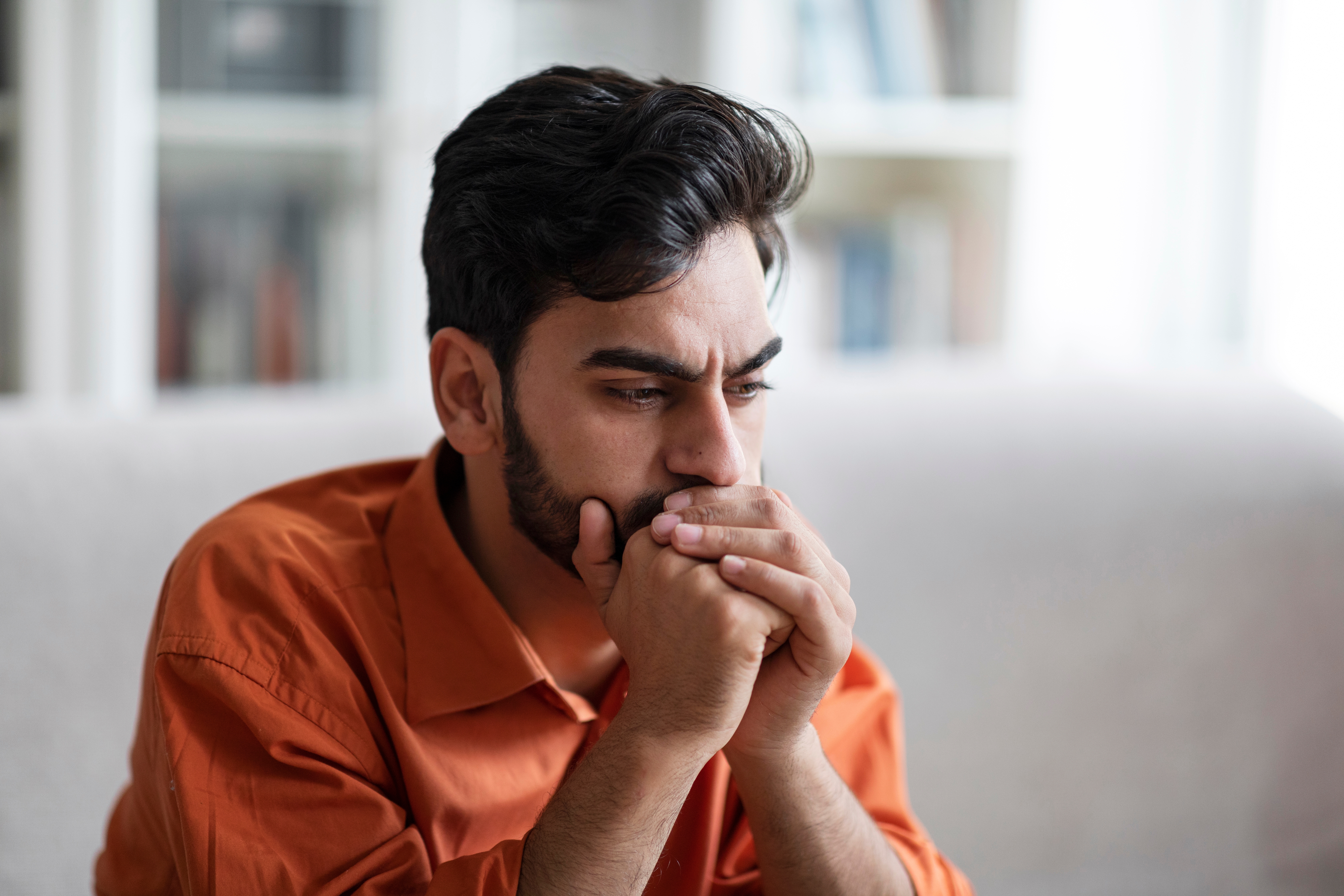
Amaha / / /
ARTICLE | 4 MIN MINS READ
What to Do When Depression Becomes Overwhelming?
Published on
17th Apr 2025
Sweta Bothra
MD Psychiatry

Severe depression, or major depressive disorder, often presents with symptoms that go beyond plain sadness. It disrupts daily life and can leave people hopeless. Apart from exploring symptoms, we also look at the actionable steps a person can take to address severe depression and what seeking help can look like. It posits that, with the right support, it’s possible to live a fulfilling life.
Depression isn’t just regular sadness– it’s an all-consuming emotion that can make it very difficult to navigate everyday life. It’s like carrying an invisible weight, which if not addressed, can grow heavier over a lifetime. When depression becomes severe, it often feels like there’s no way out. Truth is, with some steps taken towards recovery, both help and hope are closer than you think.
Severe depression—often referred to as major depressive disorder (MDD) with severe symptoms—goes beyond just a bad day or feeling low. It’s a condition that persistently affects not only your mood but cognitive functioning and the ability to think clearly.
Symptoms of severe depression often include;
- Physical symptoms: significant weight change that’s sudden, disrupted sleep patterns, constant fatigue
- Struggling cognitively: difficulty remembering details, focusing or making decisions easily
- Loss of interest: loss of interest in activities and things you once loved
- Intense feelings of sadness and hopelessness: not simply a sad mood, but instead a pervasive feeling that life has no meaning or joy
- Suicidal thoughts: A continuous desire to harm yourself or end your life
Sometimes, severe depression can include psychotic symptoms like delusions or hallucinations. If these occur, it’s critical to seek immediate help.
What to do when depression feels overwhelming
- Talking to someone you trust: opening up to a friend, family member, or even your partner can provide a sense of connection and relief. They may even be able to help you in finding the right support.
- The fact that you’ve even recognised you’re struggling is often one of the most important steps, and one of the first steps towards feeling better.
- Seeking professional help from a psychiatrist, doctor or therapist is critical for addressing severe depression. The diagnosis they provide and, treatment options they suggest are some of the first most crucial steps towards recovery.
- If the symptoms feel unmanageable, these options are worth considering;
- Crisis Intervention Services: Local helplines and crisis centers can provide immediate support in emergencies.
- Partial Hospitalization Programs: Structured therapy sessions during the day, with the flexibility to return home in the evenings.
- Inpatient Treatment: A hospital setting that offers 24/7 care and a safe space for recovery.
When is mental health support needed?
Severe depression doesn’t automatically go away on its own. If you or a loved one or somebody you know is experiencing symptoms that continue for weeks or are worsening, it’s critical to seek help in time. Acting early helps with finding relief and taking steps towards recovery.
Some questions that can help you determine how you’re really feeling;
- Am I dealing with feelings that affect my ability to work, connect with others and care for myself?
- Do I deal with feeling hopeless most of the time?
- Do I have thoughts of self-harm or suicide?
If the answer is yes to any of these questions, take them as signals to reach out for help.
Treatment options for severe depression
Connecting with a mental health professional can guide you through a variety of treatment options, which can often include;
- Therapy: Various therapy interventions like Cognitive Behavioral Therapy (CBT), which helps reframe negative thought patterns, and Dialectical Behaviour Therapy (DBT), which teaches coping skills for emotional regulation.
- Medications like antidepressants or mood stabilisers can help stabilise brain chemicals and improve symptoms.
- Lifestyle adjustments such as regular movement/exercise that helps boost mood through endorphin release, healthy eating that supports brain health and supportive social connection because isolation can worsen depression.
- Alternative treatments like electroconvulsive therapy (ECT) have been observed to be effective for treatment-resistant depression. Ketamine infusions or TMS (transcranial magnetic stimulation) are another emerging treatment option for those who don’t respond well to traditional treatments.
How to get help when depression becomes overwhelming
Asking for help is the first step towards recovery when it comes to severe depression. The stigma associated with it, financial liabilities and limited access to care are commonly seen obstacles.
- Addressing stigma: Depression is a medical condition, not a personal failure. Reaching out for help is an act of courage.
- Finding affordable therapy: Many therapists offer sliding-scale fees, and community clinics often provide low-cost services. Online therapy can also be a more accessible option.
- Building a good support network: Surrounding yourself with people who understand and encourage your recovery journey.
Severe depression can feel overwhelming and isolating, but many people around the world are navigating very similar struggles. Taking the first step towards treatment can mean you have a shot at a life where joy and purpose can be found again.
If you or someone you know is in crisis, don’t hesitate to ask for help– call a helpline, visit a local crisis centre, or seek immediate medical help.
Depression, despite the attendant hopelessness, is very treatable. With the right diagnosis, medication, therapy and support, you can find relief and rediscover joy and purpose in life. Being gentle with yourself is important and it’s important to remember that asking for help is a powerful act of courage.
Was this article helpful?
Yes
No
If you didn't find what you were looking for, please reach out to us at [email protected] or +912071171501. We're here for you - for anything you might need.



Build a good life for yourself
with Amaha
Best App
for Good
on Google Play India

